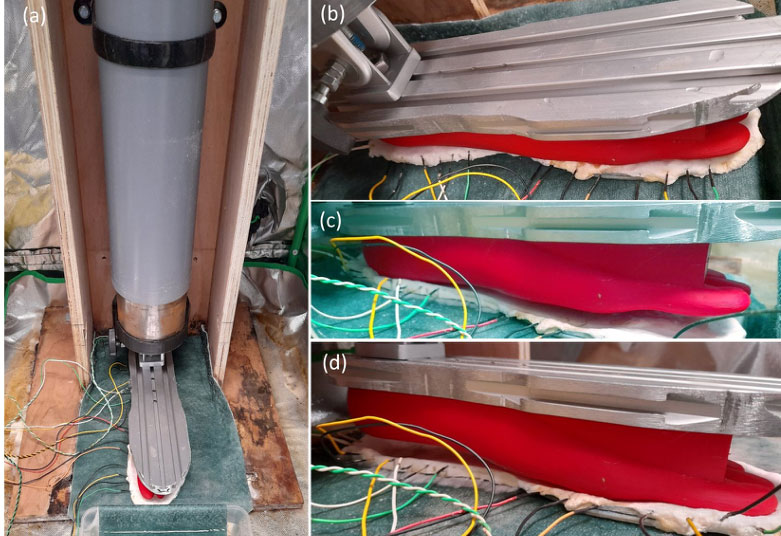
Bespoke insole test rig: (a) setup inside growth tent; (b) weight uniformly distributed via pivot joint on prosthetic foot; (c) heel bias; and (d) toes bias.
Biomaterials, such as mycelium bound composites, present a promising alternative to conventional smart insoles. They exhibit sensing and responsive capabilities without requiring additional space and external inputs to operate, using their own bioelectric activity. Fungal sensors offer increased biodegradability; they are self-sustainable as they can self-grow, self-repair, and self-assemble; they are abundant; and they offer low-technology cultivation. Moreover, they are inexpensive and easily scalable to produce customized insole sizes. Now, researchers at the Unconventional Computing Laboratory at the University of West England have assessed the electrical response of bespoke insoles made from capillary matting colonized with oyster fungi to compressive stress.
A test rig was developed using a prosthetic foot to apply compressive loading to insoles to replicate the weight of a human when walking and standing. Three modes of compressive loading were explored: toe bias, heel bias, and uniformly distributed. Electrical activity (spiking) was recorded in mycelium bound composites fabricated into insoles.
The experiments showed that the number and periodicity of electrical spikes changed when the mycelium was subjected to compressive loading. According to the researchers, this showed that it might be possible to discern the loading from the electrical response of the fungi to stimuli. The results advance the development of intelligent sensing insoles, which are a building block toward more generic reactive fungal wearables. Fungal based insoles offer augmented functionality (sensory) and aesthetic (personal fashion), they said.





